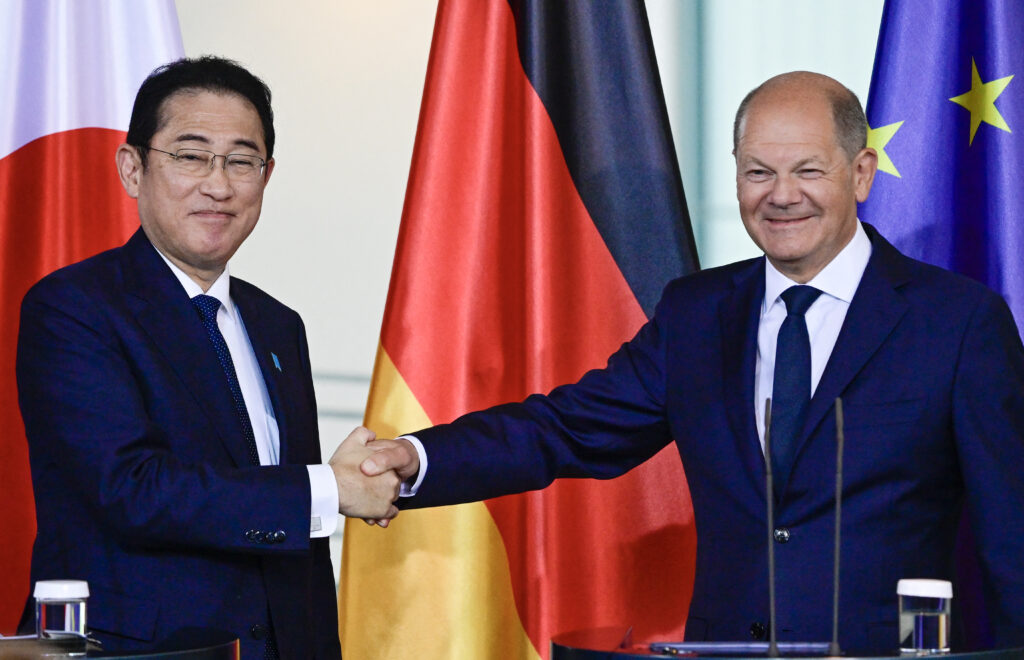
- ARAB NEWS
- 06 Jul 2025

BERLIN: Japanese Prime Minister KISHIDA Fumio and German Chancellor Olaf Scholz agreed Friday to expand defense cooperation in the Indo-Pacific region in light of China’s increasingly hegemonic actions there.
The two leaders also agreed at their meeting in Berlin to establish a framework exclusively for economic security dialogue, in order to strengthen supply chains for semiconductors and critical minerals.
Kishida said at their joint press conference that security in Europe and the Atlantic is inseparable from that in the Indo-Pacific.
“We hope to further work together with Germany to deal with the deepening military cooperation between Russia and North Korea as well as China’s moves related to the Russian invasion of Ukraine,” he said.
Scholz referred to a plan to send German military aircraft and a frigate for a visit to Japan this summer and said that the visit not only has symbolic value but also serves to confirm the extent of Japanese-German cooperation.
He also stressed the importance of adhering to the U.N. Convention on the Law of the Sea amid China’s increasing activities in the South China Sea and expressed concern about the flow of weapons from North Korea to Russia.
The two leaders agreed to strengthen cooperation between their countries’ armed forces after the bilateral acquisition and cross-servicing agreement, or ACSA, came into effect the same day. Japan and Germany are set to hold a “two-plus-two” meeting of foreign and defense ministers in Japan soon to discuss details.
In the area of economic security, Kishida and Scholz confirmed the importance of cooperation between the two countries, which share similarities over industrial structure and advanced technology, amid concerning developments regarding China and Russia. The German leader emphasized the need to avoid economic dependency on a single country or region.
The economic security dialogue framework is set to include officials from the foreign and trade ministries of Japan and Germany’s Ministry for Economic Affairs and Climate Action.
The Kishida-Scholz summit lasted about two hours including a dinner. The leaders agreed to hold the second round of bilateral talks between them and their ministers in Germany as early as next year.
JIJI Press